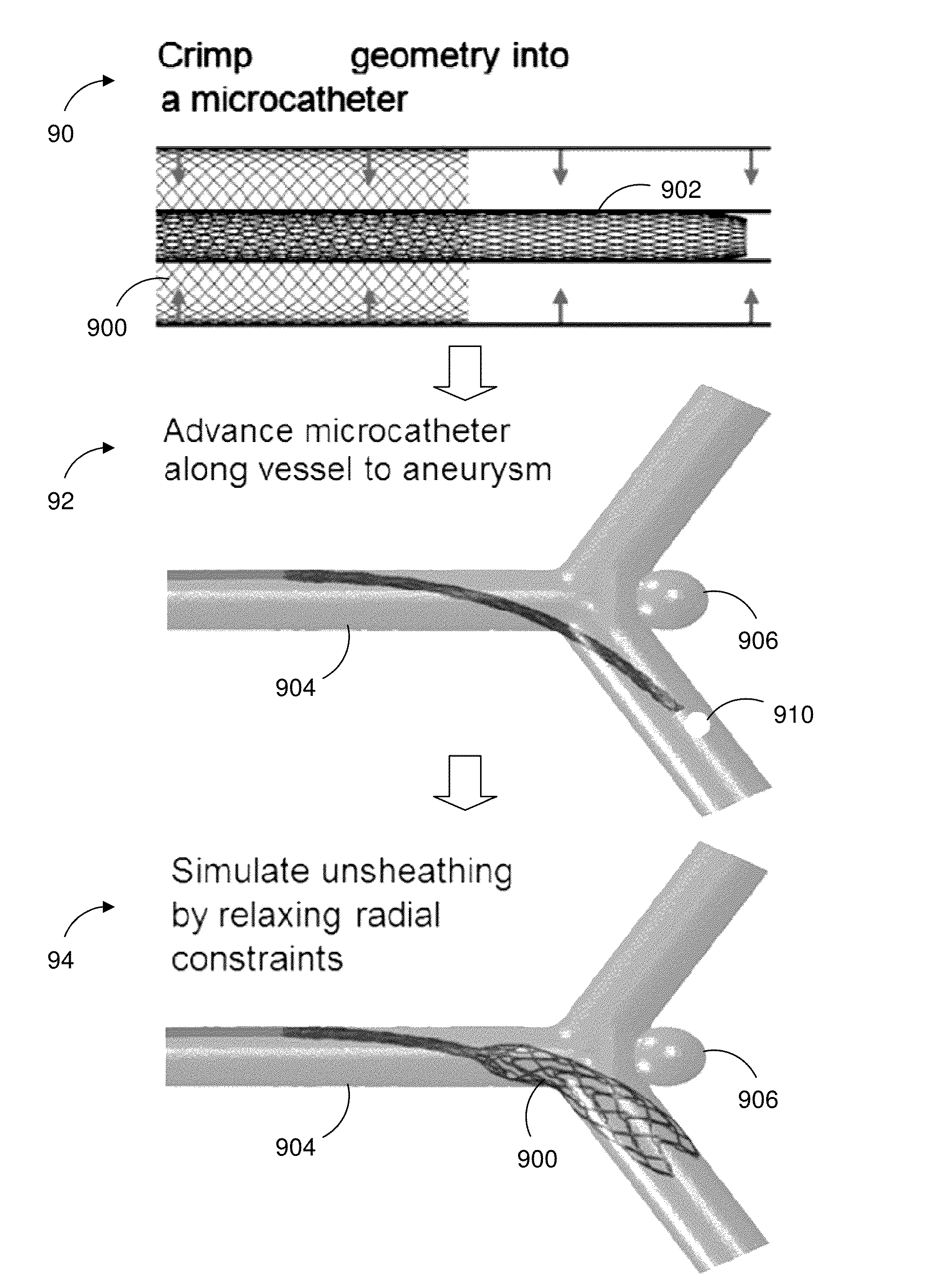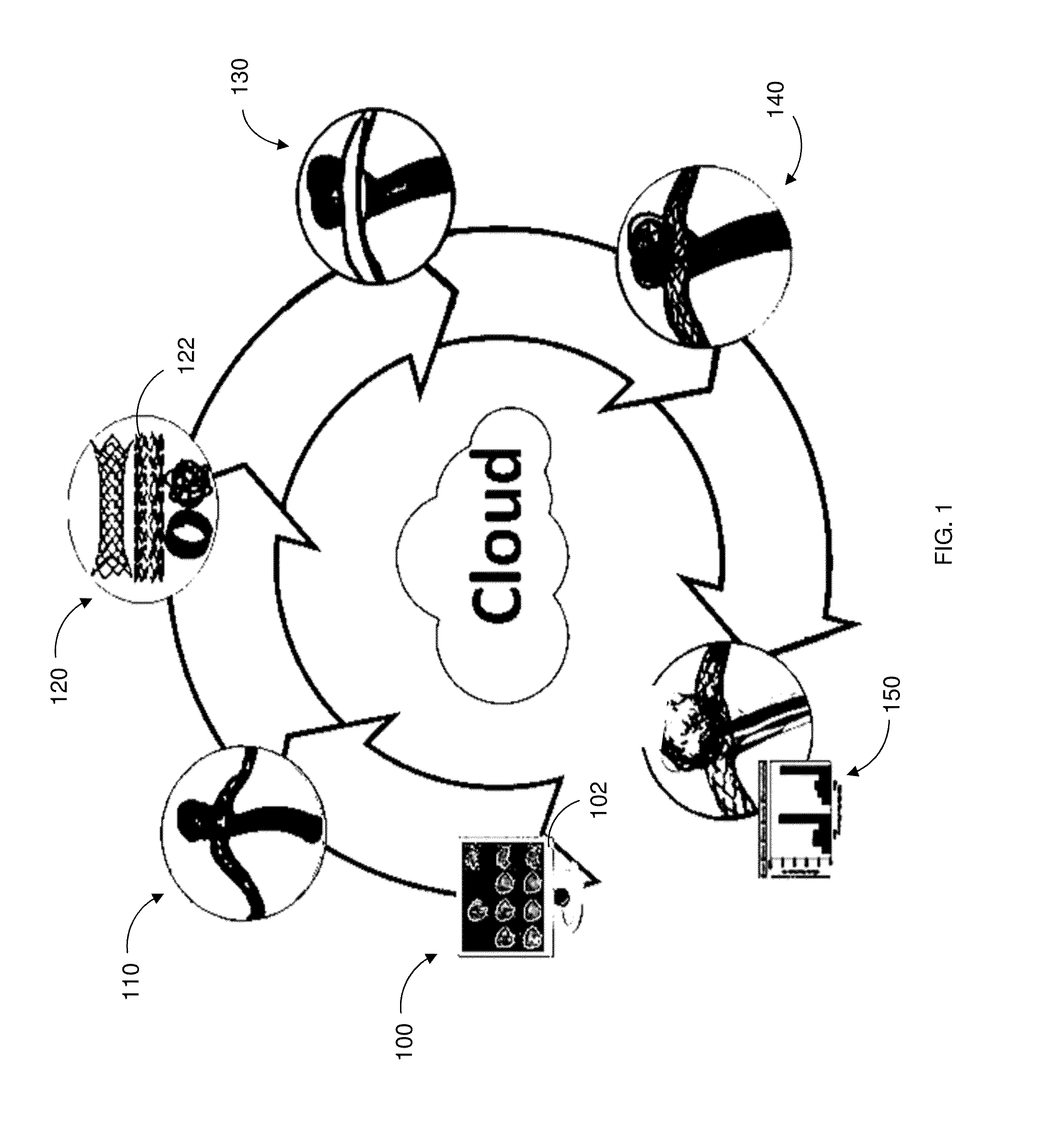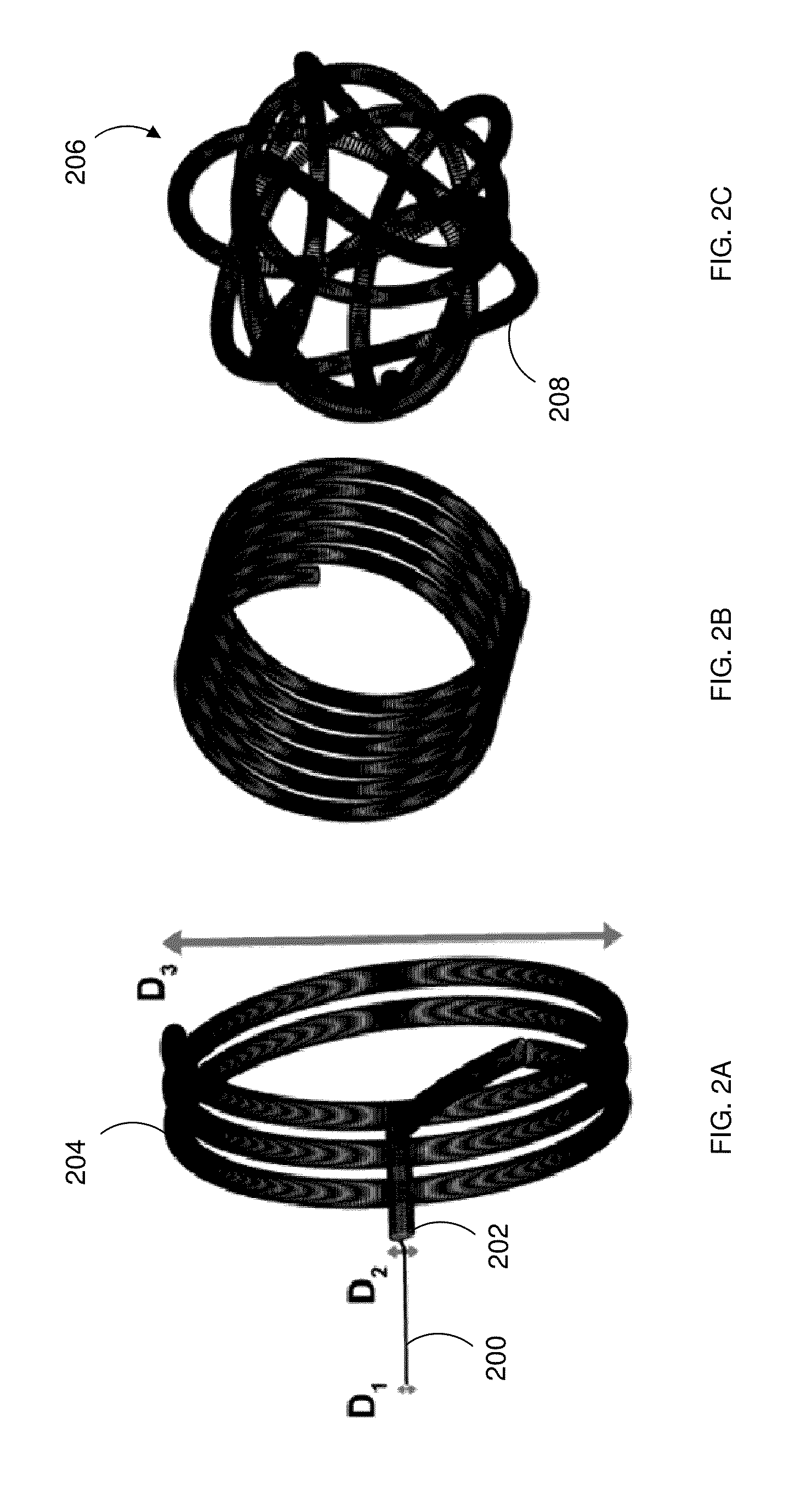Device specific finite element models for simulating endovascular treatment
a medical device and finite element model technology, applied in the field of medical device deployment simulation, can solve the problems of severe headache, nausea, vomiting and/or loss of consciousness, and endovascular treatment carry risks, and carry significant risks
- Summary
- Abstract
- Description
- Claims
- Application Information
AI Technical Summary
Benefits of technology
Problems solved by technology
Method used
Image
Examples
Embodiment Construction
,” one will understand how the features of this invention provide several advantages over current designs.
[0015]An aspect of the present disclosure provides a system for simulating medical device dynamics. The system includes a database configured to store medical device models and one or more processors. The one or more processors are configured to virtually construct an anatomical structure model of a patient, simulate a deployment of a plurality of the medical device models in the anatomical structure model, and simulate hemodynamic outcomes of the deployment of the plurality of the medical device models in the anatomical structure model.
[0016]Another aspect of the present disclosure provides a method for simulating medical device dynamics. The method includes storing a computer readable database comprising medical device models, constructing, by the one or more processors, an anatomical structure model based on patient clinical data, simulating a deployment of a plurality of the...
PUM
 Login to View More
Login to View More Abstract
Description
Claims
Application Information
 Login to View More
Login to View More - R&D
- Intellectual Property
- Life Sciences
- Materials
- Tech Scout
- Unparalleled Data Quality
- Higher Quality Content
- 60% Fewer Hallucinations
Browse by: Latest US Patents, China's latest patents, Technical Efficacy Thesaurus, Application Domain, Technology Topic, Popular Technical Reports.
© 2025 PatSnap. All rights reserved.Legal|Privacy policy|Modern Slavery Act Transparency Statement|Sitemap|About US| Contact US: help@patsnap.com



